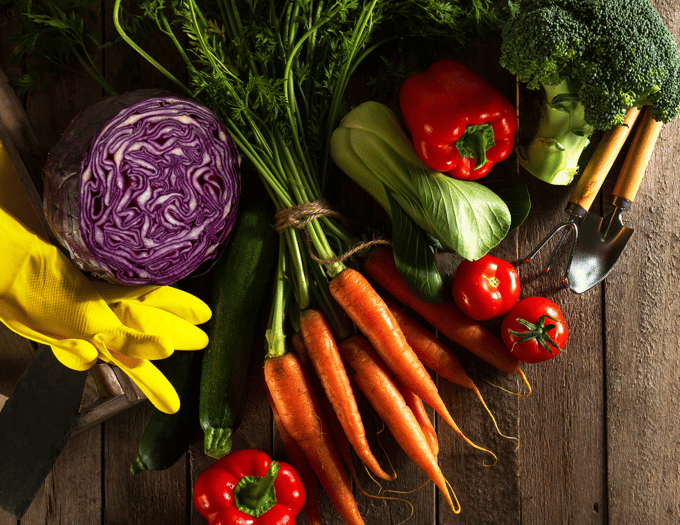
Updated: 2024
Everyone loves the fresh tastes and cooking possibilities from having your own vegetables. Most growers will want to use organic growing practices to maximize nutrition. Start with high-quality soil and plant by seed or transplant at the proper time, and you’ll enjoy the rewards from growing your own food. This checklist gives you the most important points.
FIRST SEASON
SITE:
- The first season can be more difficult with smaller yields, but have patience! Choose your site carefully - vegetables need at least 6 hours of sun, and preferably 8 or more. Plan for ease of frequent maintenance. Amend and plant directly, or use raised beds, which give you much greater success with many plants due to their increased drainage and ease of soil turning. Larger containers (5-15 gallon sizes or larger) can also work for many types of vegetables.
SOIL:
- Don’t treat your soil like dirt! Vegetables need the best soil health you can give them in order to get the best results. For containers, try our NHG Organic Potting Soil. For raised beds, start with a heavier base and amend. For in-ground situations, amend focusing on compost to lighten the soil and add drainage, or you can use your own compost and recipe.

Additional Amendments for Vegetable Gardens
Try adding these other ingredients to help ensure your success:

PLANTING:
- Consult our Vegetable Planting Dates for North Texas handout for month to month recommended planting dates by seed or transplant for spring and fall seasons.
CULTURE:
- As the growing season progresses, remember to continue to fertilize at the rates on the label for your chosen crop. Most will require feeding once per month at the very least. Note that this is especially important in the first year as the soil matures.
SECOND SEASON & THEREAFTER
• Maintain an even approach to watering whenever possible. Watch for earthworms to appear as the soil ages and the nutrients become more available to your plants.
• It is normal for the soil to settle, and the organic matter to be used up by the plants each season. Add additional prepared soil mix, or the composts, Garden Soil Acidifier, or manure and fertilizer. Turn this upper layer and moisten prior to starting the next planting season. See a Garden Advisor for rates and help in choosing amendments.
• Unless seeding, make sure the mulch layer is maintained at all times.
• Monitor your growing garden carefully– daily if possible—for potential pest and disease problems to catch them early and maximize your harvests.
Featured Image: Canva
